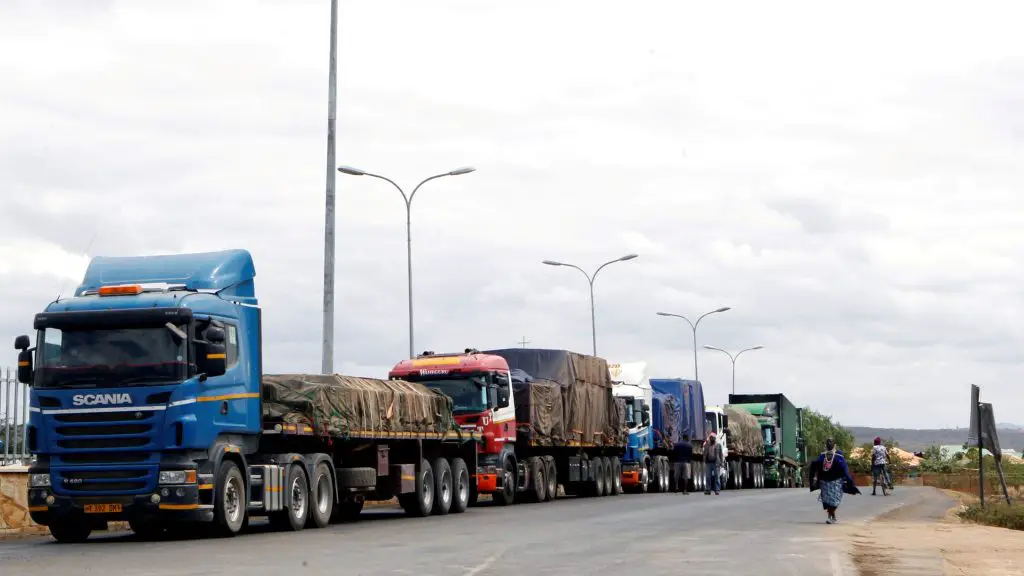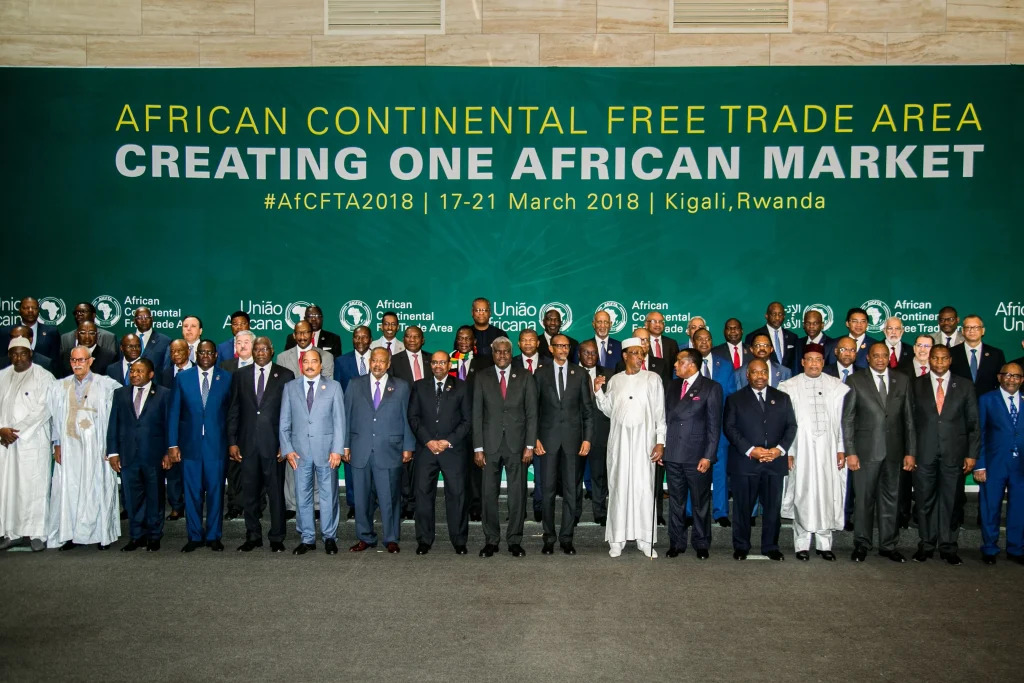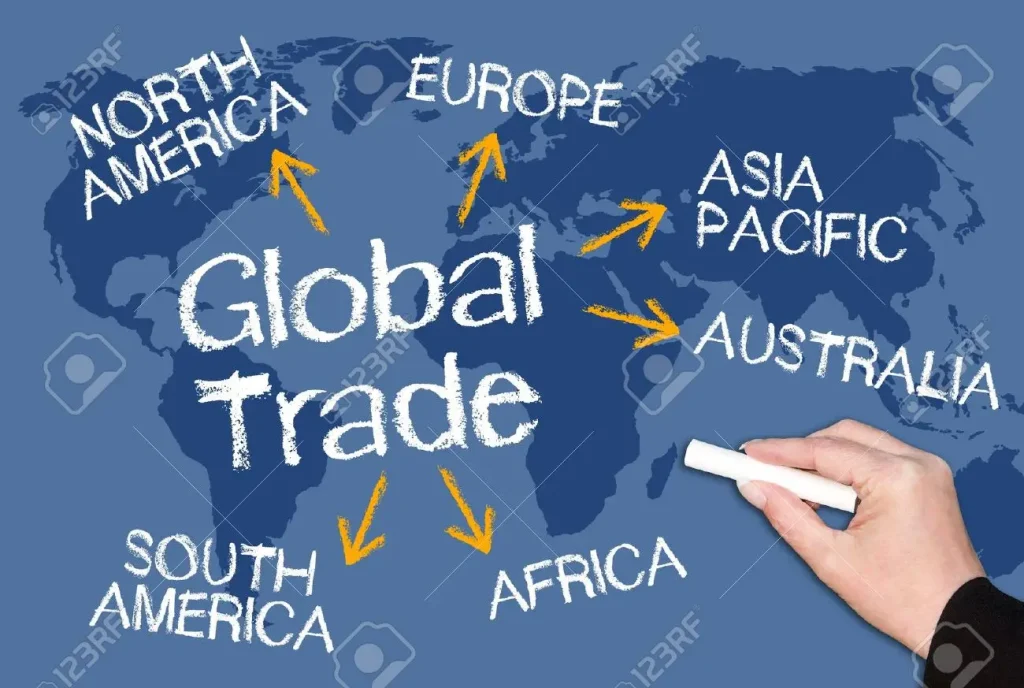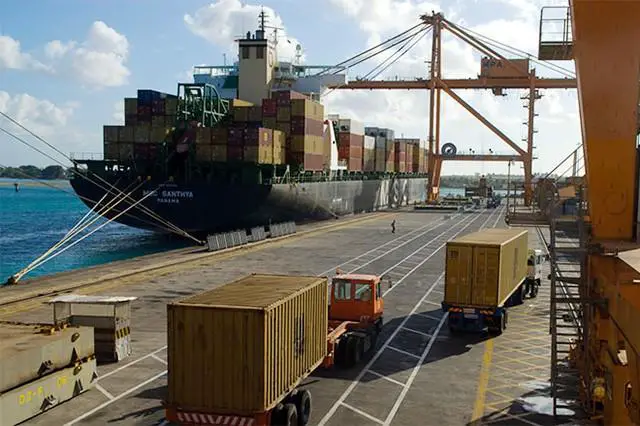- Slashing foreign aid: Is Trump right or wrong?
- Arusha bets big on tourism with EAC’s largest conference center
- Regional lender KCB Group net profit grows by 64% to $477 million
- Kenya-UK partnership aims to cut red tape on trade and grow incomes
- AIM Congress 2025 to host high-level talks on global investment shifts
- Can Africa replace king dollar with gold as Its primary store of value?
- Kenya’s Controller of Budget calls for urgent reforms to curb $77.3M debt
- Trump cuts: Africa does not want aid, it needs debt relief
Browsing: Trade in Africa
- Four feasible value chains, namely pharmaceuticals, cars, cotton apparel and baby food, could drive intra-Africa trade
- A new report said the four areas link at least five African countries from different regions and have the potential to add value, reduce imports, lift trade and diversify economies for women and youth
- Despite the potential, several challenges stand in the way of using the four areas to boost intra-Africa trade, including lack of trust in product quality
New research has shortlisted four feasible value chains that could drive intra-Africa trade out of more than 415 possibilities.
According to the ‘Made by Africa: creating value through integration’ report, the four areas are pharmaceuticals, cars, cotton apparel and baby food.
What can Africa do to boost the value of intra-Africa trade?
The report said the four areas link at least five African countries from different regions and have the potential to add value, reduce …
The difficulty of transferring commodities throughout Africa is not new to the continent. It is currently a key impediment to the AfCFTA’s prospects, especially in building regional industrial supply chain clusters. Africa’s massive infrastructure deficit has hindered regional trade and economic integration for decades, notably in transportation and supply chain fragmentation.
Some parts of the continent, specifically areas surrounding East African nations, do far better in cross-border movement and trade. However, most African countries fare poorly on metrics such as cross-border clearance processes. According to the World Bank’s Logistics Performance Index, the regions also struggle with trade quality, infrastructure, inconsistent tax regimes, and consignment trace and track techniques.
Digitalisation in Africa’s logistics industry will address some of these difficulties. Furthermore, the development of digital logistics startups has aided in the facilitation of connection, which is critical to the movement of commodities within the area and across borders.…
It is critical to strengthen a professional, independent supervision secretariat to make the AfCFTA agreement’s promise a reality. A strong secretariat can assist states in developing strong domestic institutions to administer, monitor, and enforce the AfCFTA. The moment for change has arrived. The conventional development models have failed Africa. The AfCFTA, on the other hand, signifies that Africa is open for business.…
Nations launched the AfCFTA as one of the actions made to support more extensive intra-African trade. The AfCFTA aspires to establish a unified continental market for goods and services. The agreement seeks to harmonise the continent’s various trade liberalization procedures and promote regional integration. Each African nation is a member of at least one of the continent’s approximately 30 bilateral or regional trade agreements.
Africa suffers from marginalization in the global trade system. Nevertheless, the African Regional Trade Agreements heralded a new age of economic integration with significant trade creation impacts. The path to free trade poses several significant obstacles and concerns that African governments must solve.…
A mineral-rich continent, with a fast-growing economic potential and a considerable population stands a chance to become a predominant global hub for trade and investment. Africa’s growth potential has been mainly driven by a significant surge in investment, as indicated by the African Development Bank. As opposed to consumption expenditure driving economic growth, industry players and governments have realised the long-term benefits of investment to the growth of African economies. A longevity approach to a sustained growth of the African continent as a whole is the thrust of Agenda 2063 of the African Union, propelled by the African Continental Free Trade Area (AfCFTA) agreement. …
The US and China, two of the world’s biggest superpowers, are currently in the midst of a trade war. The battle centres around the uneven trade deficit between the two countries. While Africa may not be a direct participant of the war, there is a risk of the continent getting caught in the crossfire.
The Titans At War
In 1995, the US-China trade deficit stood at around $45 billion in favour of China. By 2018, the trade deficit had reached approximately $420 billion.
The ballooning deficit triggered a response from the American administration which accused China of unfair trade practices and intellectual property theft. Both parties threw words, tariffs and tweets in each other’s direction. Truce talks have provided periodic calm periods in between the storm. Both economies have suffered in the process recording significant declines in exports, income and local business activity. The rest of …
Africa is great and has the potential to be greater—economically. The youngest continent in the world stands to garner billions in the trade as its youngest generation present a potential to transform, the continent’s economic pillars, from agriculture to investment.
The region has more than 1.3 people and nearly 60 per cent of its population is under 25 years, according to United Nations Data for World Population Prospects 2017. This means that Africa can fetch healthy intra-regional and international trade growth if it utilizes its existing potentials.
As the African Continental Free Trade Area (AfCFTA) is around the corner to be domesticated (postponed due to virus outbreak), the trade pact could ignite Africa’s industrialization and boost income generation.
The trade pact connects more than 1.3 billion Africans in 55 countries with a combined gross domestic product of nearly $ 3.4 trillion while lifting more than 30 million people from extreme …









